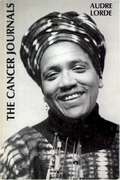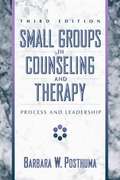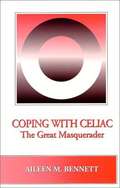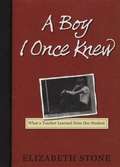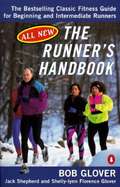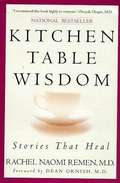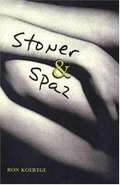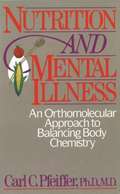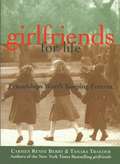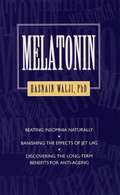- Table View
- List View
Small Groups in Counseling and Therapy: Process and Leadership
by Barbara W. PosthumaWhat are the characteristics of a cohesive group? What are the attributes of a good leader? What are the hidden agendas that govern certain group dynamics? Everyone needs a basic introduction into group dynamics in order to interact with the people in their personal and professional community. Small Groups is a practical hands-on approach to group dynamics. People in the various helping professions, as well as other professionals and lay citizens, will find in this book the appropriate conceptual knowledge and practical skills needed for effective small group leadership.<p> In addition to considering the theories of leadership and group process as well as the attributes and roles of leaders, the author applies the information in a practical step-by-step manner. He also introduces new programs on assertiveness and awareness. Topics include: group development, group dimensions, goals and norms, leadership attributes and techniques, ethics and multiculturalism, and self-help groups.
The Strengths Perspective in Social Work Practice
by Dennis SaleebeyA book about working in counseling and case management with the mentally ill
Off to the Races
by Peter C. Sessler Nilda SesslerDiscusses sport car racing and how it differs from other kinds of auto racing and describes various sport cars.
Brain Sex: The Real Difference Between Men and Women
by Anne Moir David JesselThis book explains differences between the brains of men and women.
The Dangerous Edge: The Psychology of Excitement
by Michael J. Aptera GREAT book on people's attraction to danger
Coping with Celiac: the Great Masquerader
by Aileen M. BennettThis is a book about sharing: shared stories, recipes, information about books that have been of help and general advice. This is a book for those who have Celiac Sprue, a disorder that makes the gluten that is in many foods a poison. This is easy to read and has lots of good resources.
A Boy I Once Knew: What a Teacher Learned from Her Student
by Elizabeth StoneIn 1995 Elizabeth Stone received an unexpected gift - a carton of notebooks, the journals of a former high-school student named Vincent. Dying of AIDS at the age of forty, Vincent willed his diaries to his former ninth-grade teacher, asking her to turn his life into a book. Stone weaves her own life story through excerpts from Vincent's diaries. As Vincent comes to terms with the deaths of friends and with his own approaching end, Stone is helped to make her own peace with loss and death as a part of life.
Complications: A Surgeon's Notes on an Imperfect Science
by Atul GawandeA surgeon writes about some of his most interesting patients.
The Runner's Handbook
by Jack Sheperd Shelly-Lynn Florence Glover Bob GloverIf you're a runner, or would like to be one, The Runner's Handbook will answer all your questions about the sport. Fitness expert Bob Glover--who has trained thousands of runners--shows you how to: Get motivated and stick to a routine Devise a training program Compete in races and marathons Choose the best shoes, clothing, and accessories Maintain good health and nutrition, with tips for stress and weight management Integrate cross-training into your routine Minimize and treat injuries And much more Before you lace up your running shoes, turn to The Runner's Handbook.
The Psychology of Melancholy
by Mortimer OstowDescribes the symptoms of depression and the subconscious steps victims often take to stave it off.
Kitchen Table Wisdom: Stories that Heal
by Rachel Naomi RemenDoctor shares her journey as a healer and patient.
Stoner and Spaz
by Ron KoertgeFOR SIXTEEN-YEAR-OLD BEN BANCROFT a kid with cerebral palsy, no parents, and an overprotective grandmother, happiness is, watching Bride of Frankenstein for the umpteenth time.
Nutrition and Mental Illness: An Orthomollecular Approach to Balancing Body Chemistry
by Carl C. PfeifferNutritional therapy for mental illness. Explains the role played by vitamins and trace elements in mental health.
The Snake Pit
by Mary Jane WardBased on the author's experiences as a psychiatric patient in the early 1940's, this novel tells the story of Virginia Cunningham as she wends her way through the frightening and mystifying world of a hospital called Juniper Hill. Her memory clouded by a series of electroshock treatments, Virginia struggles to make sense out of her situation, though the senseless rules and the perplexing behavior of the staff and patients around her are all the more unfathomable as her mind begins to clear. The Snake Pit is the basis for a classic movie of the late 1940's. The book and film helped to bring mental illness out of the closet. Apart from its social significance this is a compelling novel, told with wonderful ironic humor.
Assistance Dog Providers in the United States: A Complete Guide to Finding a Guide, Hearing, or Service Dog
by Carla Stiverson Norm PritchettThis book offers excellent information of guide, service and hearing alert dogs and schools and organizations that train them in the United States. offers information on obtaining a working dog, what the different tasks that the dog do, and gives a list of addresses and contacts.
Girlfriends for Life
by Carmen Renee Berry Tamara TraederA woman's guide to keeping your girlfriends, based on fan mail and interviews with true blue friends.
The Taboo Scarf and Other Tales of Therapy
by George WeinbergA glimpse of the deep secrets behind the wondrous human psyche.
The Prison of My Mind
by Barbara Field BenzigerIn this memoir of psychiatric illness, the author describes two hospitalizations and her eventual restoration to mental health. In the first hospital she receives indifferent and even abusive treatment. In the second she has the good fortune to be assigned to a wise and compassionate psychiatrist who helps her explore her inner conflicts and find peace. Benziger writes eloquently of the terror of severe panic attacks when the world seems to be collapsing around her.
I Know How It Feels to Fight for Your Life
by Jill KrementzThis book presents first-person accounts by fourteen children (ages seven to sixteen) who live with chronic illnesses and/or disabilities. The conditions include leukemia, spina bifida, juvenile diabetes, juvenile rheumatoid arthritis, lupus, and kidney failure. The stories are very positive and pubeat. Most of the children emphasize the importance of the support they have received from family and friends.

